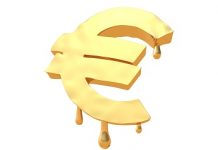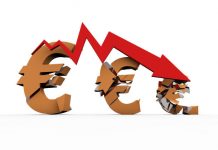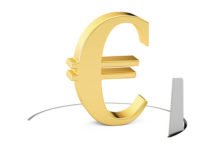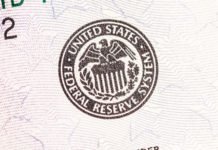Here are the latest developments in global markets:
- FOREX: With Japan being shut for the Health and Sports public day and risk-off sentiment strengthening amid trade uncertainties and political noises in the Eurozone, the Japanese yen managed to rebound, sending dollar/yen straight down to a 1 ½ -week low of 113.33 (-0.33%). Yesterday, the People’s Bank of China slashed the amount of cash banks must hold as reserves, stepping up efforts to set free some liquidity and thus boost growth in the economy. The move was considered as a defense against US import tariffs. The offshore yuan declined by 0.47%. The dollar index, though, was on the recovery after two straight negative days, gaining on the back of a weaker euro and pound. Euro/dollar was struggling below 1.1500, last seen at 1.1478 as the Italian Deputy Prime Minister, Matteo Salvini continued his verbal attack against the European commission. His threats to block migrant repatriates from Germany during the weekend were probably affecting trade appetite as well. The news came after reports that 40,000 migrants could be repatriated from Germany to Italy. Yet the German government hinted that such an agreement was not signed between the two sides. In terms of data out of the eurozone, October’s Sentix investor confidence index disappointed, dropping to 11.4 from 11.7 expected and 12.0 seen in September, adding further pressure to the euro. Pound/dollar fell back below 1.31 to trade at 1.3064 as the dollar was gaining ground despite rising Brexit optimism. Euro/pound was moving higher by 0.20%, while euro/yen and pound/yen sank by 0.67% and 0.90% respectively. Dollar/loonie was increasing momentum for the fifth day, jumping by 0.43% to 1.2990, the highest since September 28. The antipodean currencies were up, with aussie/dollar and kiwi/dollar changing hands at 0.7069 (+0.26%) and 0.6451 (+0.16%) respectively.
- STOCKS: European stocks opened lower on Monday as the monetary stimulus move in China raised fears that China might be taking US trade tariffs more seriously than markets think. Concerns that the European Commission could ask Italy to change its spending plans were also weighing on the sentiment. The pan-European STOXX 600 and the blue-chip Euro STOXX 50 were losing 0.86% and 0.75% respectively at 1200 GMT, with all sectors being in the red. The German DAX 30 and the French CAC 40 retreated by 0.85%, UK’s FTSE 100 declined by 0.56%, while the Italian FTSE MIB tumbled by 0.72%. In Asia, equities closed in negative territory with Chinese stocks falling sharply, by more than 3.0%. South Korean markets will be closed for a public holiday on Tuesday. In the US, futures tracking the Dow Jones, S&P 500 and Nasdaq 100 were trading lower as well, pointing to a negative open.
- COMMODITIES: Reports that the US may grant some countries waivers to sanctions against Iranian oil exports next month and Saudi Arabia’s willingness to meet US demands by replacing output shortfalls in Iran pressured the crude market on Monday. The Iranian energy minister said today the Iranian oil will see a severe downside in coming months, though his words did not provide mush support to crude prices. WTI crude oil was down by 1.29% at $73.38/barrel and the London-based Brent was weaker by 1.38% at $83.00/barrel, both declining for the third consecutive day. Gold reversed deeply to the downside to touch $1,194/ounce (-0.70%).
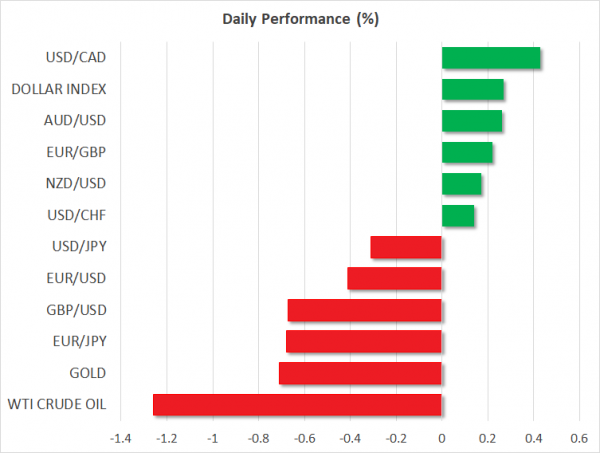 Day Ahead: Quiet day with some developments in Italian politics and Brexit negotiations
Day Ahead: Quiet day with some developments in Italian politics and Brexit negotiations
Economic releases will be light in the remainder of the day, with Japanese current account figures being next in focus on Tuesday. US bond markets will remain closed in celebration of Columbus Day on Monday, though Wall Street will be open.
One of the major releases this week will be the minutes of the latest European Central Bank policy meeting on September 13. Following the upbeat remarks of President Draghi at the conference, it will be interesting to see on Thursday whether other ECB officials are on the same page. Investors could turn sensitive to any comments regarding future rate hikes after the ECB member Klaas Knot said on Monday that policymakers will start discussing on the timing of rate rises in January. He also admitted that increases in borrowing costs might come sooner or later than guided, but the euro continued to move lower.
Any developments related to the Italian fiscal policy could move the euro during the week as well. Note that the Italian government published a draft of its spending plans for 2019 and announced its deficit targets for the subsequent two years. Although Italy kept its deficit goal below EU’s debt threshold of 3.0% of GDP, EU officials showed dissatisfaction, arguing that Italy’s budget plans deviated significantly from previous commitments. Rome said that deficit goals for 2020 and 2021 will be lowered but investors worry that the EU might maintain a hardline against the final plan, that is to be handed to the European Commission by October 15.
In terms of Brexit negotiations, optimism for the EU and the UK finding a common ground regarding divorce terms resurfaced at the end of the previous week. It is hoped that a deal could be struck on the Irish border issue, a sticking point in Brexit talks, before a relevant summit on October 17. Sterling will likely stay sensitive to any hints of progress in these talks. This week, the UK Brexit Secretary, Dominic Raab will fly to Brussels to present new proposals on the Irish border as promised by the British Prime Minister. On Tuesday the British Parliament will hold a meeting, though Brexit will not be on the agenda this time despite next week’s deadline. Lawmakers are scheduled to discuss on the budget instead, which is due at the end of the month.
